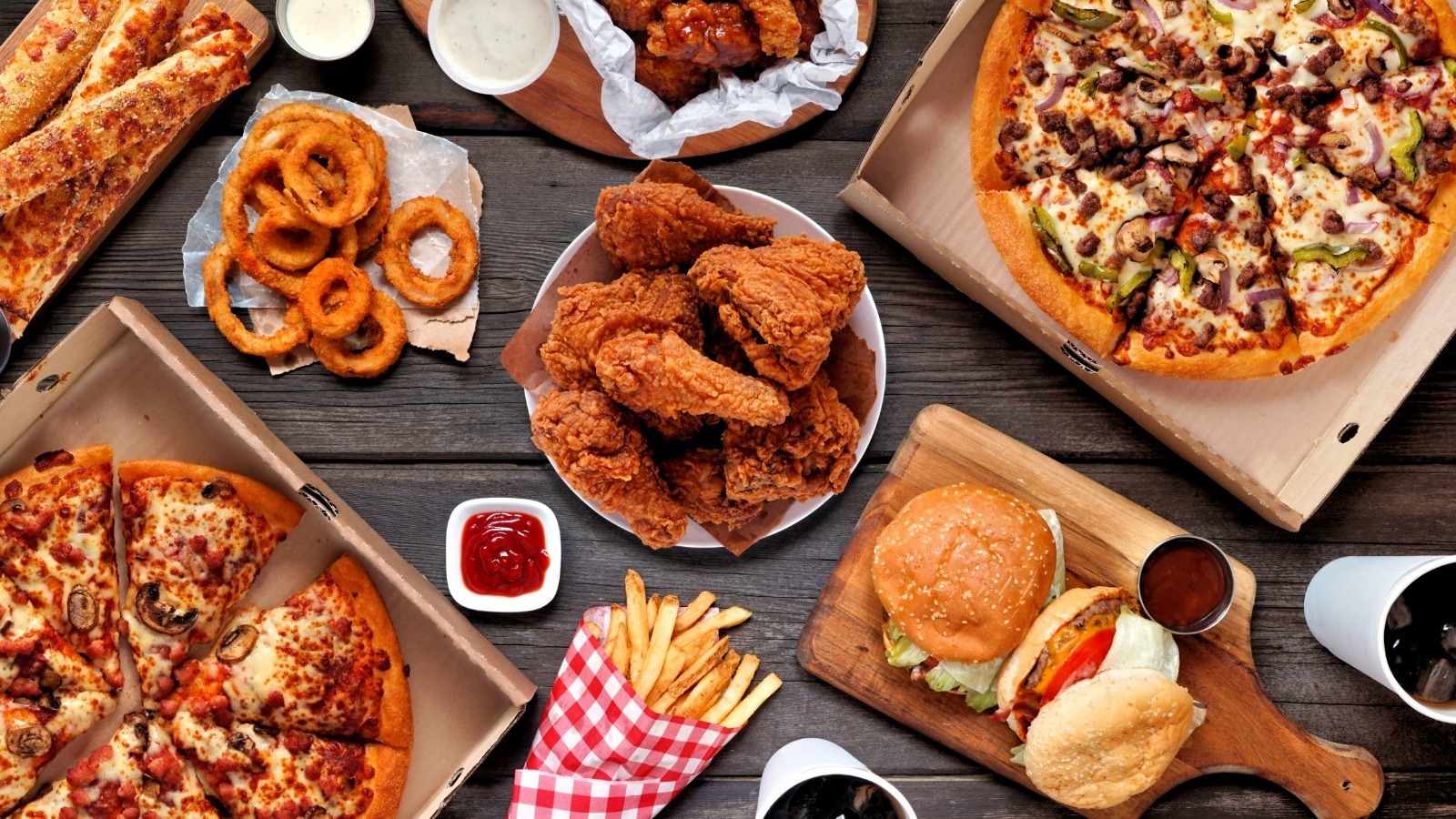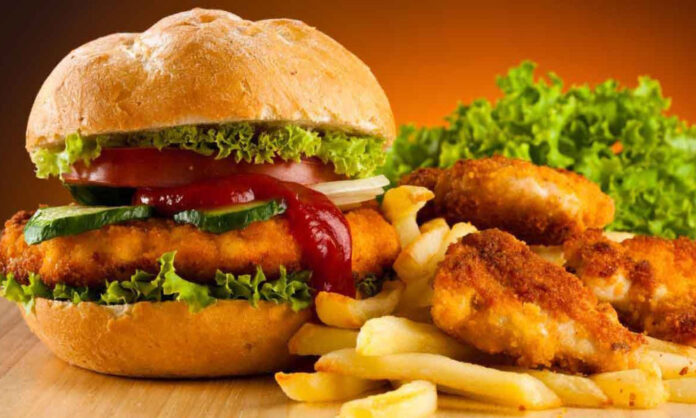If you’ve ever tried to consume greasy, spicy, or heavy food and felt stomach pain shortly thereafter, you may be wondering why exactly your stomach hurts after eating greasy food. You may even be wondering if it’s possible to feel stomach pain from greasy food when you’re not even full yet! Read on to find out the answer to these questions and more about why greasy food makes my stomach hurt.
What causes heartburn?
Heartburn is caused by stomach acid rising up into the esophagus. The esophagus is the tube that carries food from your mouth to your stomach. When this happens, it can cause a burning sensation in your chest or throat. Greasy foods are one of the most common triggers for heartburn because they relax the lower esophageal sphincter (LES).
The LES is a muscle that opens and closes to allow food into your stomach. When it’s relaxed, it doesn’t close as tightly, which allows stomach acid to escape and cause heartburn.
How can I prevent heartburn when eating greasy foods?
While heartburn is common, it’s not a very pleasant experience. There are a few things you can do to prevent heartburn when eating greasy foods.
- First, try to eat smaller meals more frequently throughout the day instead of large meals.
- Second, avoid foods that are high in fat and grease.
- Third, eat slowly and chew your food thoroughly.
- Fourth, avoid carbonated beverages and alcohol.
- Fifth, don’t lie down immediately after eating.
- Sixth, prop up your head and shoulders when you sleep.
- Seventh, see your doctor if you experience heartburn regularly or if over-the-counter medications don’t provide relief.
Heartburn is common in people with gastroesophageal reflux disease (GERD). If you experience symptoms of GERD, discuss your options with your doctor. If over-the-counter medications don’t provide relief, you may need to consider other treatment options.

Common triggers of heartburn while eating greasy foods
Eating greasy foods is a common trigger of heartburn for many people. The high-fat content in these foods can relax the lower esophageal sphincter (LES), which is the muscle that separates the stomach from the esophagus. This allows stomach acids to flow back up into the esophagus, causing irritation and pain.
Additionally, greasy foods tend to be high in calories, which can contribute to weight gain and increase the risk of obesity-related diseases, such as heart disease and type 2 diabetes. If you suffer from heartburn after eating greasy foods, there are a few things you can do to ease your symptoms.
What medications are prescribed for acid reflux or heartburn?
If you experience heartburn or acid reflux, your doctor may prescribe medications to help relieve your symptoms. These can include antacids, H2 blockers, and proton pump inhibitors. While these medications can be effective, they don’t work for everyone.
Some people may find that lifestyle changes are all they need to control their symptoms. Avoiding alcohol, caffeine, spicy foods, fried foods, dairy products, and acidic juices can reduce the frequency of acid reflux episodes.
One other thing to avoid is wearing tight clothes while lying down. Doing so causes pressure on the stomach from weight gain in other areas of the body. You may also want to stop smoking as it relaxes the sphincter muscle in the esophagus which worsens acid reflux symptoms
How can I control my heartburn without drugs?
Heartburn is a common problem caused by acid reflux. When you have acid reflux, stomach acid rises up into your esophagus. This can cause a burning sensation in your chest or throat. If you have heartburn more than twice a week, you may have GERD.
There are a few things you can do to prevent heartburn or reduce its severity:
- Avoid trigger foods and beverages. Common triggers include fatty or fried foods, citrus fruits, chocolate, caffeine, and alcohol.
- Eat smaller meals more often throughout the day instead of three large meals.
- Chew your food slowly and thoroughly before swallowing to help prevent indigestion.
- Don’t eat within two hours of bedtime.
- Sleep with your head elevated if possible, on pillows or an extra pillow so that gravity helps keep acid down while you sleep.
- Sit upright for 30 minutes after eating and then lie down to avoid any potential reflux while sleeping at night.
- Take over-the-counter antacids such as Maalox, Mylanta, Rolaids, or Tums to relieve symptoms when needed.
- Take medications such as Nexium and Prilosec for short-term relief of heartburn symptoms only as directed by your doctor.
- If you need long-term relief from severe symptoms of acid reflux (heartburn), talk to your doctor about getting medical treatment such as surgery or medications which can offer relief from chronic acid reflux problems (GERD).
- Limit consumption of spicy foods, caffeinated beverages, carbonated drinks and chewing gum; these might worsen your symptoms.
- Consult with a physician who specializes in gastroenterology if you have persistent or worsening heartburn despite taking appropriate measures to alleviate it.
- Ask family members not to smoke around you; this could increase irritation to the lining of your esophagus and intensify your heartburn episodes.
I know it can be hard to avoid your favourite foods, but by following these steps, you can help prevent acid reflux. I wish you all of my best wishes.
Ways to cope with heartburn while travelling or on vacation?
Travelling can be hard on your stomach, especially if you’re prone to heartburn.
Here are a few tips to help you cope:
- Avoid greasy foods – they are one of the most common triggers for heartburn.
- Eat smaller meals more often – this can help prevent your stomach from becoming too full, which can trigger heartburn.
- Stay upright after eating – gravity can help keep stomach acid where it belongs.
- Wear loose-fitting clothing – tight clothing can put pressure on your stomach and make heartburn worse.
- Avoid spicy foods – these can irritate your digestive system and make heartburn worse.
Your travel doesn’t have to be derailed by heartburn. If you have some good tips for how to cope with heartburn when travelling, we’d love to hear them! Share your advice in our comment section below.
Conclusion
In conclusion, greasy food can make your stomach hurt for a variety of reasons. If you have GERD, eating greasy food can cause a flare-up. If you have IBS, the fat in greasy food can trigger symptoms. And finally, if you have an ulcer, the grease can irritate it and make it worse. So if you’re prone to stomach pain, it’s best to avoid greasy foods altogether.


